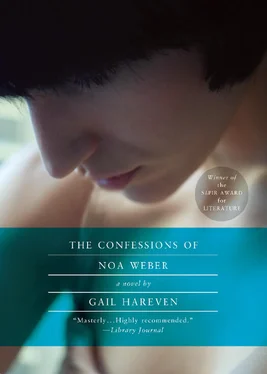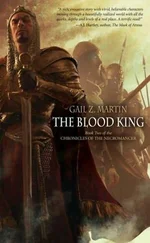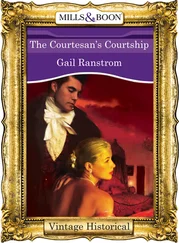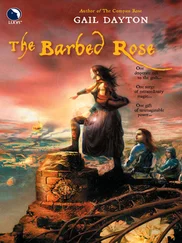The background data of the story didn’t present any problems, they were all taken from testimonies I heard at work before the decision to limit the activities of the fund to this side of the Green Line: the bribes paid to the Military Government, the harassment and frequent arrests, the contractor seen riding in the company commander’s jeep, the medic’s suppressed evidence, the pen in which the young boys were confined, the scene of the nocturnal burial.… The scene of the boys behind the barbed wire and the picture of the night burial annoyed a lot of people.
Nira Woolf already existed in my head before Blood Money as an infantile fantasy. In 1974 she solved the murder of the soldier Rachel Heller; in ’75 I sent her to the Savoy Hotel as a resourceful hostage; in my night runs, when men bothered me with disgusting lip-smackings, Nira Woolf would fell them to the pavement with one graceful blow, without even stopping. She still does it, and to this day I still summon her to deal with male pests. The mere thought of her helps me to radiate something that sends them packing.
Once Nira Woolf put a man in a wheelchair after he raped an old woman in Ramat Gan and got off with community service; and once I sent her to the High Court of Justice to eloquently plead the case of the people evicted from their homes in Yemin Moshe, and she won. As I said: an infantile fantasy, a completely infantile gratification, but from the moment I sent her into action in a well-constructed plot, the fantasy became a little less shameful. My last doubts concerning Nira, strangely enough, were about her hair, and in the end, after dying it and shortening it and lengthening it, I gave her an Annie Lennox look that was before its time. For some reason I was bothered by this matter of her hair.… Now I don’t know anymore if her cropped head speaks of fragility or strength, but this was the look I decided on in the end, and this is how she has remained ever since. Forty-five years old, big breasts that won’t develop cancer, and a close-cropped, almost shaved, blonde head.
Two publishers rejected the book in letters of one and a half lines. I was prepared for this, what I wasn’t prepared for was the extent of the response after the publication, and the way in which people began to identify me with Nira. At fund meetings my colleagues began to make remarks in my presence such as: “Maybe we should get Nira Woolf on the case,” or: “Let’s not be carried away into adopting Nira Woolf solutions,” and on a number of occasions Jeff warned me that, “What we need here is quiet, in-depth work,” and, “Forgive me for saying so, but this is a matter that demands exploration and negotiation, not a militant style.” As if I had ever given him any reason to doubt my “in-depth work.” All of a sudden I needed to prove that I was “serious,” that I was “realistic,” that I wasn’t trying to cut corners and shorten procedures with a kick, and at the same time, to my embarrassment, they seemed to imagine that I actually could take advantage of all the publicity to get things done without going through the proper channels, which was far from being the case. It didn’t help for me to repeat that I wasn’t Nira and Nira wasn’t me, people simply refused to listen; Nira was a symbol, I was seen as a standard-bearer, and for want of an alternative I decided to enjoy playing the role and put it to use wherever possible.
I’m not trying to say, God forbid, that Nira Woolf’s opinions were far from my own, and since Nira Woolf acted more than she voiced opinions, I was obliged to formulate the views that justified her actions — which, in the last analysis, certainly did me no harm. Suddenly I was asked for my opinion on oppression in general and in particular, on the state and the individual, on the state and Zionism, on Zionism and women, on women and the patriarchal structure, on women’s literature and the representation of women in literature, and so on and so forth — and it seemed that even those close to me attributed a new importance to my words, as if they “represented something.”
Nira Woolf improved my financial situation, Nira made me “opinionated”—as people began later on to call any woman who had an opinion — Nira Woolf prompted me to read and think; so that in the final analysis it could be said that I, at least, was empowered by her character. She was born from the voice of an infantile fantasy, but from the moment she began to make her way in the world, she made me into what people today call a “voice.”
LITERATURE AND REVOLUTION
My editor, who is more literary than I am, once quoted me something that Schiller is supposed to have said: All women writers write with one eye on the page and the other eye on a man, except for the Countess Von So-and-So who has one glass eye.…
With me it’s the complete opposite. I never wrote with one eye on Alek, I never attacked him, and with both eyes on the page I was actually free for a while of his imagined gaze. With the years and the additional books I sometimes regretted writing so fast, so that the truce never lasted long enough.
Alek left for Paris in 1982, before the IDF invaded Lebanon, and from my point of view before the publication of Blood Money , so that he missed my transformation into a “public figure,” and he also didn’t read the book. It was only when they sent me the contract — the first, bad one — that I told him I’d written a book, and he was glad for me and congratulated me and came round with a bottle of fine wine. After he had refilled my glass until I was too drunk to return to the office, he asked me to tell him something about the book I had written — even today, with all my experience, I find it difficult to answer this question — and then, when the embarrassment was still new to me, I said something like: ‘Well, look … it’s not actually literature … it’s more like a thriller … with a strong heroine, a lawyer, not exactly a lawyer, not only … but a woman with power. My editor says that on the jacket blurb they’re going to call it a feminist thriller.”
“Feminist thriller is good,” he said and smiled and leaned over me and took a cigarette, “thriller is good, and feminist thriller is even better. It’s a pity I can’t read it.” And inserting his hand under my neck he added: “You know what they say … in time of revolution the relation of literature to life is a relation of incest.”
“What revolution?” I asked, drunk and vague.
“Today this is your revolution, the women’s revolution.”
A thousand times since then I’ve used this phrase, “the feminist revolution,” and since I was asked, I’ve learned all kinds of illuminating things about its relation to literature and literature’s relation to it. Sometimes now, in an intimate rather than a public setting, when I’m listening to Hagar, it occurs to me that this worn out word, “revolution,” explains something in relation to her. In my relation to her, I mean. My darling Hagar is to a great extent the product of this revolution: good, clear-minded, and emotionally focused; and I am a daughter of the generation of the wilderness, not like her.… I got stuck in the middle and only half of me has made it. The good half, I say. I look at her in the same way as the hairy Neanderthal no doubt looked at Homo sapiens , lurching at a four-legged crouch, and however hard he tried to stand up straight and speak like a human being, he went on blurting out ancient, unintelligible grunts.
Hagar will never ferment underground and poison herself underground, and everything that bubbles inside her rises to the surface and is clarified in the light of day. I should have missed my transparent, enlightened daughter more.
But why “should” I? Who says I “should have”? When she left home for the first time with her boyfriend to do a year of national service in Ofakim, I wasn’t sorry. They were like two clumsy, happy cubs, they romped around the house, they talked without stopping, they conducted long ideological seminars in the kitchen. I admit that I needed quiet, that I was tired of clarifying and explaining and answering so many questions at home as well. Afterwards I sometimes missed her. Actually, what do I know about the Homo sapiens I brought up? Perhaps she too.…
Читать дальше












